However, to put the regulation into practice, many opinions say that there needs to be detailed instructions, technical support mechanisms, and a suitable roadmap.
Standardize processes, increase transparency and apply technology
Sharing about the draft Circular, Mr. Huynh Van Chuong - Director of the Department of Quality Management ( Ministry of Education and Training ), emphasized the important new point related to the unit's full responsibility in organizing the exam; at the same time, requested the units to provide solutions to organize the exam to ensure safety, objectivity, fairness, and seriousness; clearly assign responsibilities to departments participating in organizing the exam; and keep exam papers confidential before, during and after each exam.
The draft also increases the application of information technology in the exam organization process; supplements regulations and procedures for building exam question banks to increase the effectiveness and efficiency of State management.
The draft Circular also allows affiliated units to expand the scale of exam organization (can organize exams abroad); encourages and supports Vietnamese educational institutions to establish branches, open representative offices or implement educational programs abroad; allows educational institutions to organize Vietnamese language proficiency assessment exams abroad...
Associate Professor Dr. Nguyen Van Long - Principal of the University of Foreign Languages (University of Danang ), commented that the draft Circular shows a trend towards higher standardization, transparency, clearer responsibility and stronger application of technology in exam organization.
From the implementation practice, Associate Professor Dr. Nguyen Van Long said that the amendments in the draft create unity, reduce overlap, and facilitate implementation. Specifically, integrating two examination regulations (foreign language and Vietnamese) in one document helps universities and examination centers avoid having to "read many circulars", compare and explain overlapping documents. This is necessary when schools organize both foreign language and Vietnamese exams for foreigners.
In addition, the draft emphasizes the application of technology and digital transformation in line with the trend of modernizing exams; providing images of candidates during the exam for later verification helps reduce the risk of fake certificates or fraud after the announcement of results.
The regulation allowing for association and organization of examinations abroad is an advantageous opening point, especially for schools with international partner networks, the need to organize examinations for Vietnamese people abroad, or international students. Schools can take advantage of facilities, international relations, or foreign representative offices to serve as examination sites.
Agreeing with many new points in the draft, Mr. Khuat Van Thanh - Vice Principal in charge of T78 Friendship School, said that integrating regulations in the circulars on the regulations for assessing foreign language proficiency at 6 levels for Vietnam and the regulations for assessing Vietnamese proficiency according to the Vietnamese Proficiency Framework for foreigners is necessary. This ensures consistency, creates more convenience for units in the process of organizing the exam and reduces the number of legal documents that need to be issued.
Mr. Khuat Van Thanh highly appreciated the amendments and supplements to the scope and subjects of application, in accordance with the functions of State administrative agencies and educational public service units.
In particular, adding a unit to coordinate the organization of Vietnamese language exams abroad is a very important new point, helping to promote the process of popularizing Vietnamese language to other countries, creating a legal corridor for units to improve their capacity in training, fostering, and organizing exams to assess foreign language and Vietnamese language proficiency. The structure of the draft Circular is reasonable, the presentation is clear, easy to understand, consistent in terminology and structure, without duplication or contradiction.
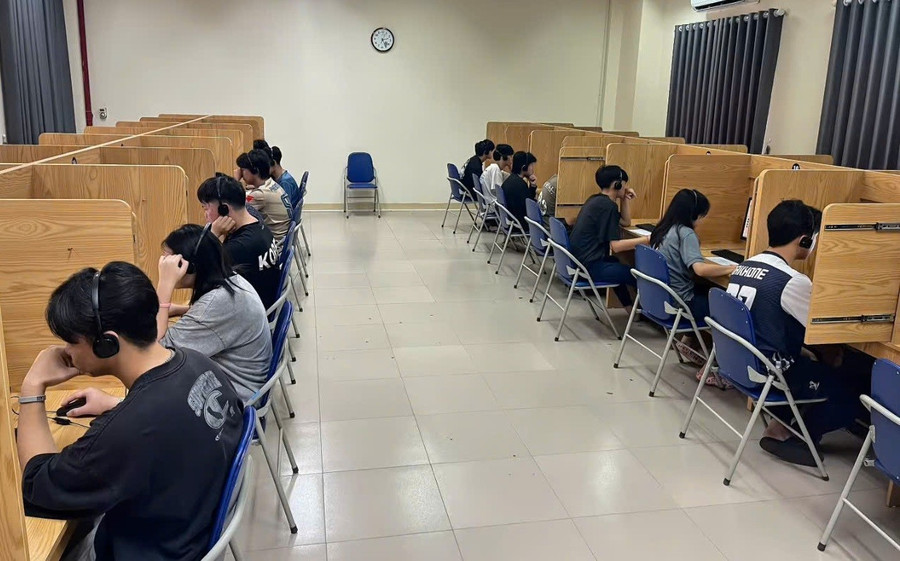
To ensure feasibility
Besides the new and suitable points, there are also some problems for schools if the new regulations are put into practice. Referring to the pressure on human resources and costs, Associate Professor Dr. Nguyen Van Long said that ensuring 30 professional staff (for English) or 20 people (for other foreign languages/Vietnamese) can be a burden (in terms of salary, training, and treatment mechanism).
In addition, staff must be trained to create questions, grade speaking and writing, and have the ability to organize exams. At the same time, building a question bank, testing, analyzing questions, re-compiling, and verifying requires financial resources, specialized testing software, and data analysis personnel. Many schools are not familiar or have no experience with this.
According to Associate Professor Dr. Nguyen Van Long, although it is allowed to "share the question bank/questions between units", sharing the question bank between schools requires clear management regulations, security responsibilities, intellectual property rights, access distribution, etc. If not well managed, there may be abuse or question leaks.
In addition, there are risks of technology and network security. When switching to digital testing, if the testing software is not secure, is attacked, or personal data/candidate photos/test questions are leaked, the consequences will be dire. Schools need to ensure network security, encryption, backup, and strict access authorization.
In addition, if the question bank is not really large, the regulation that "used questions can only be reused after a minimum of 12 months" may cause a shortage of questions for exams in consecutive years, especially if there are many exam sessions. Schools need to plan for a larger question bank and develop it continuously.
Commenting on the draft, Associate Professor Dr. Nguyen Van Long proposed a mechanism for sharing the bank between units. Accordingly, clearly defining ownership, copyright, security responsibilities, usage costs, and access rights for the bank when many units use it together.
It is possible to build a national central system or a national question bank network, where member schools can access hierarchically (in terms of access level, question type, sample questions). At the same time, clearly stipulate the process of verifying, approving new questions, modifying questions, and removing old questions in the shared bank.
Regarding technology infrastructure standards and network security, according to Associate Professor Dr. Nguyen Van Long, there should be guidelines for implementing the Circular with requirements for "minimum technical standards" for the examination system. Specifically, clearly define the requirements for the server (with backup, encryption); testing software, security and examination supervision (camera, screen lock, network monitoring). At the same time, stipulate the responsibility for backing up data, storing exam questions, recording photos/videos during the exam, and protecting personal data of candidates.
“It is also necessary to consider the level of question reuse and exam diversification. The regulation that “used questions can only be reused after a minimum of 12 months” is quite strict. I propose considering adding a regulation that “reuse is limited for low-difficulty questions, or basic skills test sections”, as long as it ensures that the same questions are not duplicated between consecutive exams. The above suggestions aim to increase feasibility, flexibility, ensure fairness and support units facing difficulties when applying”, Associate Professor, Dr. Nguyen Van Long shared.
Commenting on the draft, Mr. Khuat Van Thanh also proposed to reconsider the absolute number of “30 people” or “20 people” and 100% must have a minimum master’s degree for all units and organizations. The reason is that training and fostering Vietnamese language has its own characteristics.
Currently, the work of training and fostering Vietnamese language for Lao and Cambodian students studying abroad under the Agreement is assigned to two schools: Friendship T78 and Friendship 80. Both schools are under the Ministry of Education and Training. In addition to their professional functions, they also play a major role in carrying out political tasks on foreign affairs and ethnic affairs in the field of education and training.
Providing absolute numbers like the above can cause difficulties for schools and some other units, because they are not suitable for the scale of training, fostering and regulations on teacher standards at these facilities.
“In my opinion, for schools that are carrying out the task of training and fostering foreign students in Vietnamese, there should only be a minimum number of teachers (lecturers) with a master's degree or higher. In addition, we hope to continue to receive the attention of the Ministry of Education and Training in the process of implementing the Circular, especially in building software to manage test banks and Vietnamese language tests on computers.
“Overall, the amendments in the draft Circular are positive, in line with the trend of modernization, transparency and international integration. However, to ensure feasibility when applying, there needs to be a roadmap, technical and financial support and clear guidance from the Ministry of Education and Training and the national testing agency.” - Associate Professor, Dr. Nguyen Van Long
Source: https://giaoducthoidai.vn/danh-gia-nang-luc-ngoai-ngu-tieng-viet-huong-toi-chat-luong-cong-bang-post752479.html








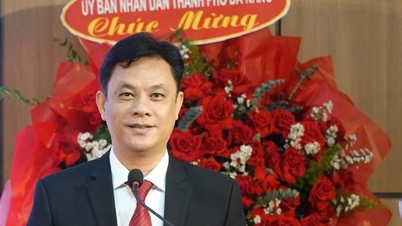
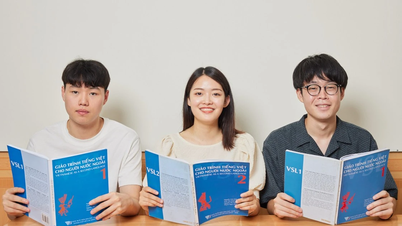






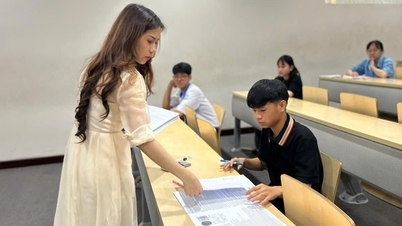

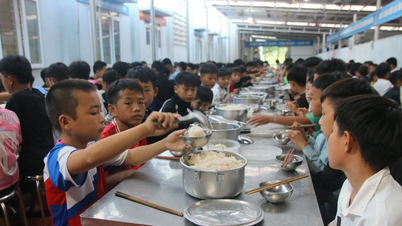
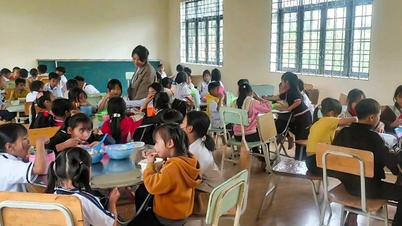
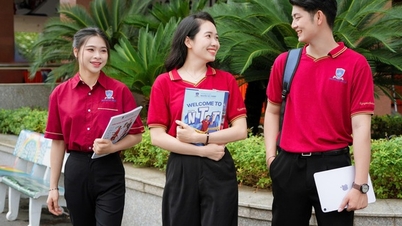
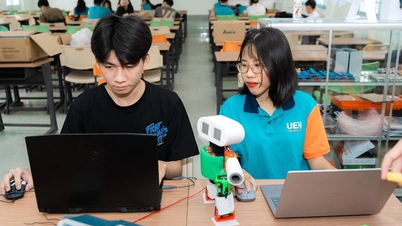
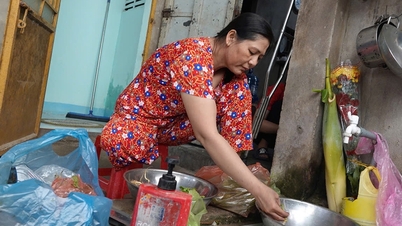





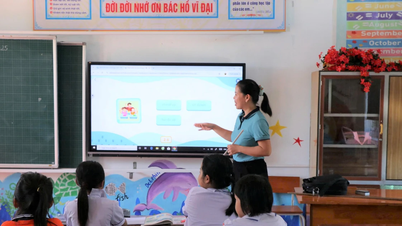
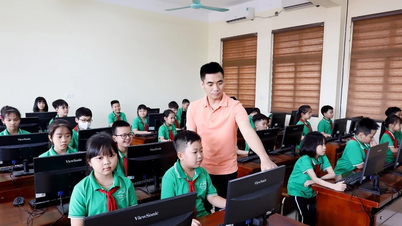

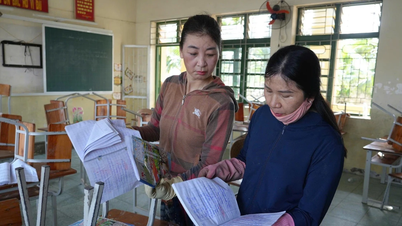
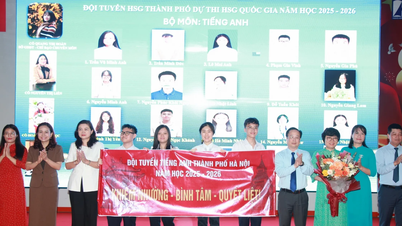


![[Photo] Ready for the 2025 Fall Fair](https://vphoto.vietnam.vn/thumb/1200x675/vietnam/resource/IMAGE/2025/10/14/1760456672454_ndo_br_chi-9796-jpg.webp)


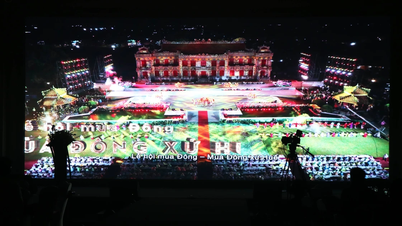








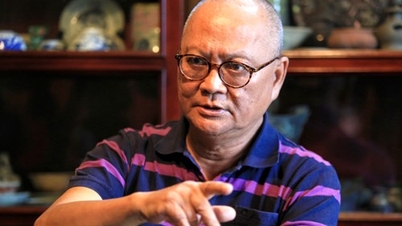










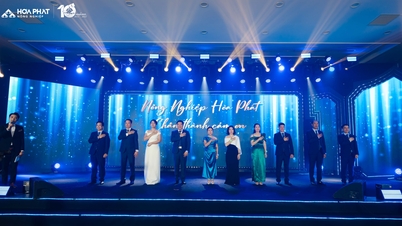


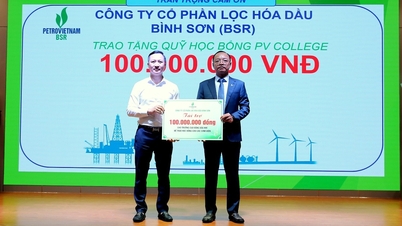
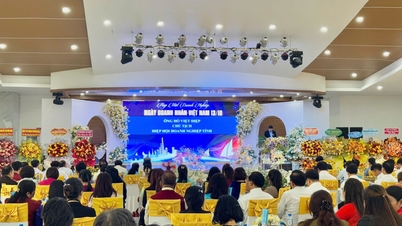
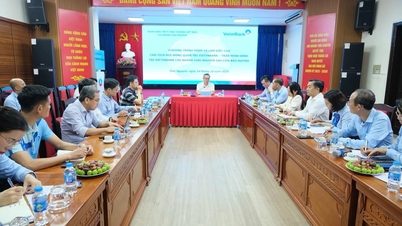







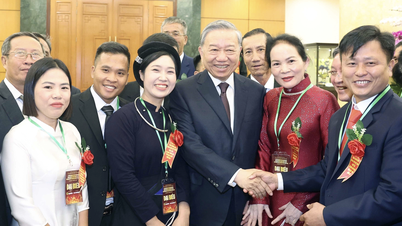

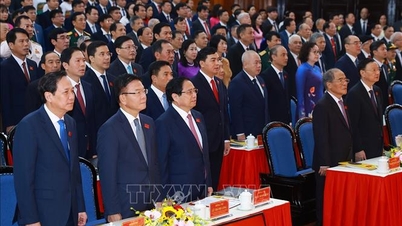


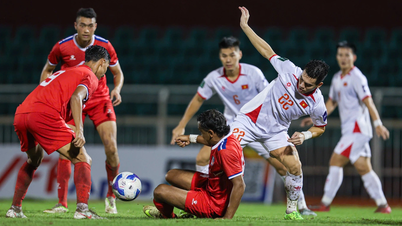





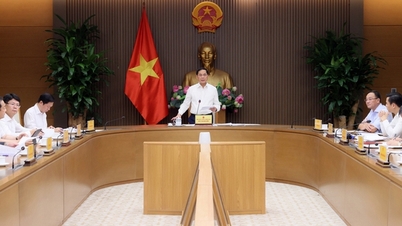


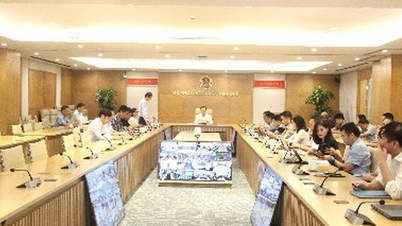

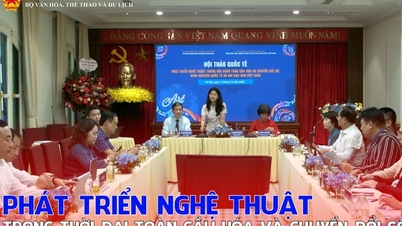


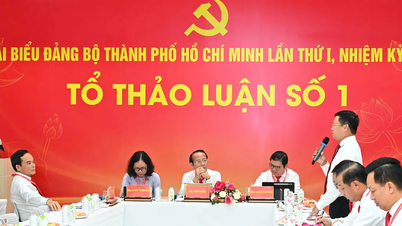

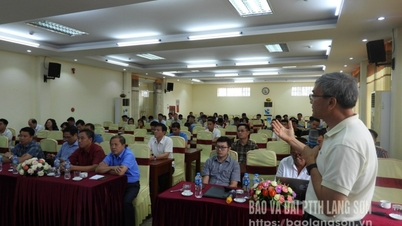

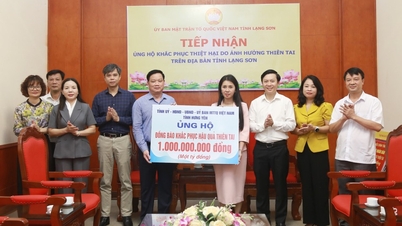
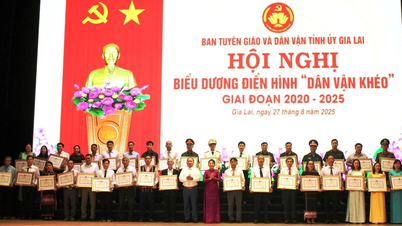
















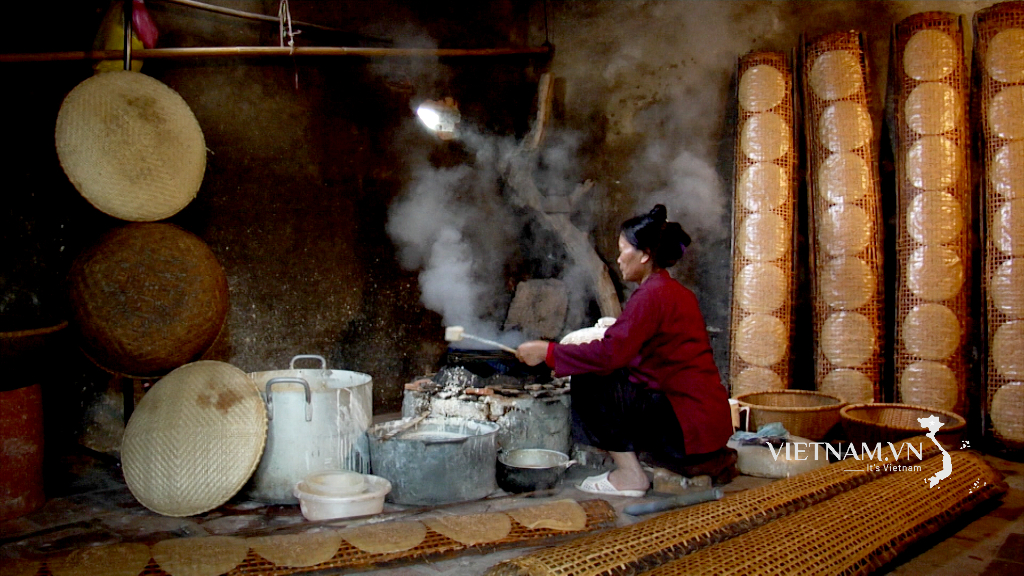

Comment (0)